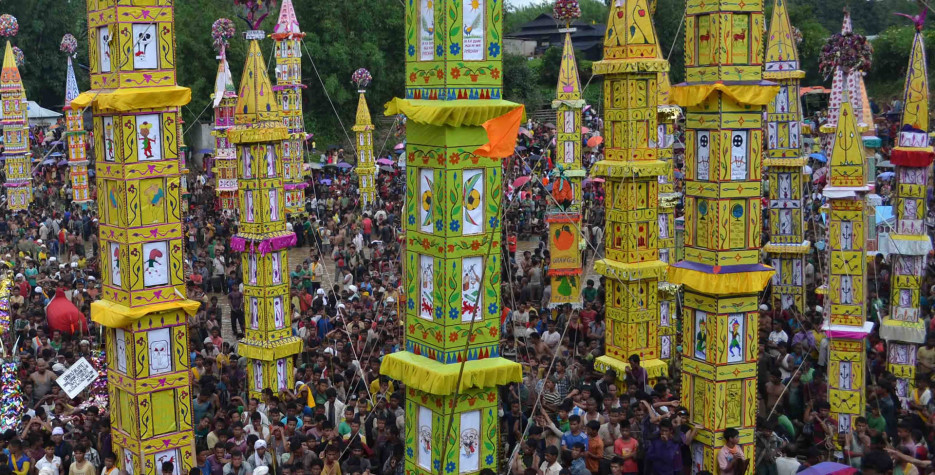When is Behdienkhlam?
Behdienkhlam is a regional Indian holiday observed in Meghalaya. It takes place in the month of July.
This is a popular harvest festival celebrated by tribal communities in the Jainta hills district of Meghalaya. The festival is observed by Hindus and followers of the 'Niamtre' faith. It is not celebrated by the Christian community in the state.
Traditions of Behdienkhlam
In many parts of the world, a successful harvest is always a time to celebrate or appease the gods to ensure a bountiful crop.
In rural communities such as those in parts of Meghalaya, it is also important that there is no outbreak of disease which could be as destructive as any famine.
'Behdienkhlam' literally means 'to drive away evils (Beh dien) and plague (khlam)', and is often called the specific name of 'driving away the demon of Cholera.
According to the World Health Organisation, Cholera is an acute diarrhoeal infection caused by ingestion of contaminated food or water, with around 1.3 to 4.0 million cases, and 21 000 to 143 000 deaths worldwide due to cholera each year.
Taking place at the end of the sowing season, just as the rainy months begin, the festival lasts for four days.
Probably the most striking feature of this colourful festival are the tall bamboo structures brightly decorated with paper called 'Rots' or 'Raths'. Each village will create a rot with their own symbols and messages. About 30 men will carry the rot to a sacred pool called 'Aitnar', where the rots are immersed to bring good fortune.
The villages then compete in Dad-Lawakor, a type of soccer game with a wooden ball. The victors will gain extra blessings for the coming months.


